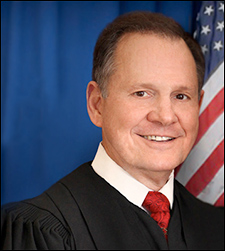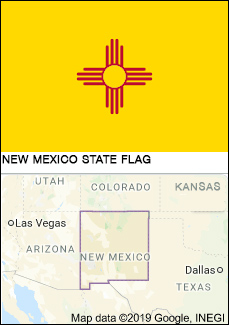By Jim Ellis

Are we about to see the return of Judge Roy Moore in the 2020 Alabama Senate race?
The Alabama Senate race may be the most important in the 2020 cycle. If the majority Republicans unseat Sen. Jones, who was the beneficiary of former state Supreme Court Chief Justice Roy Moore imploding in the 2017 special election to replace Sen. Jeff Sessions (R), they will increase their chamber advantage to 54-46 at a time when the party has to defend 10 more seats than their Democratic counterparts. If they fail to convert and Sen. Jones is re-elected, the Democrats will exponentially increase their odds of re-capturing Senate control.
Though the M-D poll did not pair Sen. Jones with potential Republican nominees, they do provide us some important information. On the question of whether Sen. Jones deserves to be re-elected, a majority response of 50 percent say he should be replaced. Conversely, 40 percent believes he should be re-elected.
The senator’s job approval ratio is virtually dead even, with 45 percent of the respondents providing positive comments about how he is performing in Washington versus 44 percent who believe he is not performing well. Jones is viewed positively in the Birmingham metro area (48:41 percent), and very positively in the Montgomery region (71:21 percent). In all other Alabama geographic sectors, he is perceived negatively with his worst numbers coming in eastern Alabama where the ratio drops to 35:53 percent.



 March 29, 2019 — Sen. Tom Udall (D) surprised the political world on Monday when he released a video announcing that the will retire when this session of Congress adjourns instead of running for a third term. Though he appeared to be a lock for re-election, the 70-year-old senator said it was time for him to look for other political avenues from which to contribute.
March 29, 2019 — Sen. Tom Udall (D) surprised the political world on Monday when he released a video announcing that the will retire when this session of Congress adjourns instead of running for a third term. Though he appeared to be a lock for re-election, the 70-year-old senator said it was time for him to look for other political avenues from which to contribute. March 27, 2019 — The third and final segment of our three-part Senate review covers the races alphabetically from North Carolina through Wyoming, with a re-visit to the new open seat in New Mexico:
March 27, 2019 — The third and final segment of our three-part Senate review covers the races alphabetically from North Carolina through Wyoming, with a re-visit to the new open seat in New Mexico: